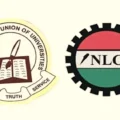Crisis or Reform? What’s Really Happening in Nigerian Universities Right Now
When Osita Chidoka, the former minister of aviation and current chancellor of the Athena Centre for Policy and Leadership, revealed the specifics of a report by his organization last week, I assumed I had heard the worst about the state of decay in the Nigerian universities system. Little did I know he was only dealing with the tip of a can of worms.
He called Nigerian universities a national disgrace in an interview that we would have to cite extensively.
Quotes
“Nigerian universities are a major source of shame for the nation.” These are the establishments that will produce Nigeria’s future leaders. They are now the bulwark of opaqueness and opaqueness. We conducted a study throughout the world and simply asked, “How much do the universities get?” I share the belief that our universities receive inadequate funding. I also wanted to know how much they make and spend.
To our dismay, neither their website nor the questionnaires we sent to the colleges to inquire about it had that information.
We then made the decision to travel to other African nations. Every university, from South Africa to Egypt to Kenya, has the information on their websites. We were aware of the amount they produced internally. We were aware of their grant income. We were aware of the amount of research funds they received. We were also aware of the amount of government funding they received. School fees provided the majority of the ongoing income for all of theNigerian universities.
Of course, there are other fellowships, research grants, and various revenue streams from alumni and others. However, we find it intriguing that Nigerian universities are unable to secure funds. People who come for doctoral degrees are eligible to donate to us. There is no accounting for even that. What is the price of training a graduate in Nigerian universities? What is the amount of funding that the federal or state governments provide to Nigerian universities? How much of their revenue is earned internally? There is a black hole in that information.
No one is aware. We are not quite aware of the costs. You would be astounded by the degree of public appropriation if you looked at the whole amount of money the federal government spends for education and higher education. Some institutions receive as much as N35 billion or N40 billion from federal allocations each year. However, there is no documentation of the expenditure of that money.
We can only view the Ministry of Education’s reports regarding the visitation panel that makes Nigerian universities visits. It is not visible on the university’s webpages.
We observe the strategic vision in contrast to universities abroad. The plan is shown. We observe their dorm accommodations, the amount of money they pay for them, and their desire to use private operators. All of this data fosters the transparency that increases university funding. The opposite is true in Nigeria.
Yesterday, I informed Professor Attahiru Jega, the previous chairman of the Independent National Electoral Commission (INEC), that we all cheered when he appointed professors as returning officers. I would have anticipated worse academics if I had understood what I now know, which is that colleges themselves lack transparency. Because, as I have stated numerous times, our electoral system is flawed. In part, this is due to the lack of transparency in the past of the university professors who serve as returning officers. As a result, they approach public service in the same manner that they manage colleges. We’re in a reversal.
It wasn’t until I saw the following startling and extremely upsetting WhatsApp post from someone we can only refer to as an insider that I realized I was going to get a bigger shock.
To ensure that those in charge of education, particularly tertiary education, understand their responsibilities, I will quote him/her again verbatim. These include the National Assembly, which should see its role as going far beyond oversight; state governments, which own some universities; and the federal government, which appears to take greater pleasure in approving more universities that have no chance of being better than the underfunded, almost dormant ones to which they are being added needlessly.
The article, titled “University Education in Nigeria is Collapsing,” which I previously characterized as a terrifying tale, goes like this:
- It is no longer viable to teach in a Nigerian university. Just making ends meet, paying the rent, and eating is a daily battle. I know and love teaching, but the stress of money is making it hard for me to execute my job well.
- I was able to pick up coworkers from their houses, drive to school every day in a family’s old, fuel-efficient car that I discreetly colonized, and never ask for gasoline money when I first started teaching more than seven years ago. I can hardly afford to take public transportation to work these days. Now, if I can, I go to work twice a week.
- According to government officials, prices are declining. Yes, I absolutely concur. But can we afford to buy it? No. My parents used to keep food on hand during these times, including beans, yams, okpa, and other items, while I was growing up in a middle-class household. Now, when prices go down, you can’t even afford to buy. Every day is a battle for survival.
- You fall into poverty after one family member becomes ill. Every year, rent goes up. The administration acts as though they are unaware of how inflation is ruining us. Ordinary Nigerians are not protected by any policies. It’s one difficulty after another.
- To save money on transportation, I once thought about sleeping in my workplace, but senior coworkers cautioned me against it. I could have to explain things I shouldn’t have to if something were to happen. So, like many others, I continue to struggle.
- I teach five classes in a semester since we are so understaffed. However, what is the true tragedy? The pupils.
They’re not being instructed. Some barely see a lecturer thrice in a semester. Their degrees are losing value because the system is collapsing. - I recently oversaw a test for students at the 400 level. Approximately 60% of the 145 are student loan borrowers. Are they receiving value for their money even though they are paying? No. Despite having no information, they graduate with certificates.
- Every week, HODs report to work. Principal officers and deans are the same thing or at most similar. Those that arrive on Monday will not return on Tuesday. Tuesday visitors won’t return on Wednesday. The days of academic efficiency are over. But whom are you blaming? Every one of them has a family.
- A three-unit course that should have three hours weekly barely receives one hour in two or three weeks. I teach five classes, so how do I cover my syllabus? Even while I feel sorry for them, I can only make their confusion worse if you want to educate 400-level pupils who don’t understand 300-level content.
- Unpaid salaries were disbursed in installments over several months following the eight-month strike. What little we had was destroyed by inflation. Price adjustments were made by the majority of other service-providing professions. Lecturers are unable to. It is scandalous if they accept payment for textbooks, handouts, or worse, grades.
- With all due respect, we are producing graduates who lack literacy. It will be the cause of this nation’s crisis in 20 years. The government needs to take action right away. This is about Nigeria’s future, not just about lecturers.
- How many of my pupils want to be lecturers? I asked them. Not at all. They wish to avoid becoming like me. They see no future in teaching, no honor, and no compensation. Teaching is now a last resort, but universities should draw the finest.
- First-class pupils used to be pleased to be kept. They won’t stay now, even if you threaten them with a pistol. Those that do are criticized for “not having enough ambition.” Nigerian academia is dying because of this.
- Nowadays, several academics make more money from side gigs than from their teaching jobs. Even if pay were to rise after that, they wouldn’t go back to teaching full-time and would instead focus entirely on their research. We are losing a generation of lecturers.
- Not everyone is equally impacted by the required government reforms that Nigerians are paying for. A few are protected. The government, meanwhile, pays little attention to the misery of its citizens. unemployment, inflation, rent increases (which state governments should address), and a lack of protection.
- I’m participating in the #30daysrantchallenge to sense the pulse of the populace, which is directed at the federal and state governments. The Nigerian universities system is failing. if we keep doing this.
The fact that things have not always been this way is noteworthy because there have been some exemplary people in charge of matters, such as Professors Herbert C. Kodilinye at Nsukka, Iya Abubakar in Zaria, Oritsejolomi Thomas at Ibadan, and H. A. Oluwasanmi at Ife.
We didn’t have or observe all of this filth and abnormality when I was a student at Great Ife, one of the best Nigerian universities in the nation, and I graduated with honors. That was as recently as the late 1960s to early 1970s, but after President Olusegun Obasanjo took office, things took a turn for the worse.
For him, Nigerian universities instructors were like footballs and could be kicked anyhow. His administration, 1999–2007, albeit, had considerable impact on Nigerian universities. He founded 12 new universities and increased financing to the universities.
The Obasanjo administration must thus be held accountable for the genesis of the majority of the issues currently plaguing our universities. Like everything Obasanjo, his aggressive privatization and commercialization of the universities did not sit well with ASUU, the association of Nigerian university teachers, which has been involved in titanic struggles, including strikes and negotiations with the government to address issues like funding, salaries, and working conditions.

DOWNLOAD EXAM SCHOLARS 2025 CBT APP ON PLAYSTORE
DOWNLOAD EXAM SCHOLARSS 2025 CBT APP ON THE APPLE STORE
DOWNLOAD EXAM SCHOLARS 2025 CBT APP ON WINDOWS
VISIT EXAMSCHOLARS.COM for more info






